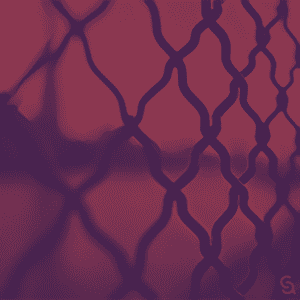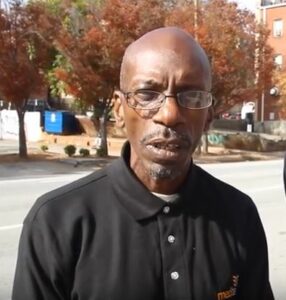
“Three babies and two adults were injured after being stabbed in a private day care facility in Queens early Friday, officials said.”
~ New York Post, 9/21/2018
“An employee…fatally shot three co-workers and injured three others before killing herself Thursday morning, police said.”
~ The Baltimore Sun, 9/20/2018
My instinct is to stay in bed, smother fear with a pillow, cultivate the illusion of safety beneath the warmth of my duvet. Waking to the news of yet another shooting, stabbing, natural disaster, investigation update, I find myself echoing Francis Schaeffer: How should we then live?
I don’t mean what should we do—should our churches be more political? Should we trade our laptop activism for marching in the streets? How do we have the hard conversations around gun rights, access, ownership, and mental health when our society is so polarized? No, my question this morning is more pedestrian: how do I get out of bed?
And then, how do I wake my five children? How do I send them off to school? How do I live my life inside the constant threat of terror?
How do I live my life inside the constant threat of terror?
Liturgist Kenji Kuramitsu writes of terror, “Such fear is a colonization of the mind—an alien power occupying neural territory, stripping internal reservoirs of strength and breeding insecurity and anxiety.” And I can’t help but wonder if my own genetic tendencies toward anxiety make my mind more available to be colonized.
I don’t want to let fear colonize me.
Shortly after the 2012 mass shooting during The Dark Night Rises, my husband and I went out on a date, leaving our four young children—ages seven and under—with a friend. We wanted to see a movie, but as soon as we arrived, I could feel my anxiety start to drag me under. In the darkened theater, I was scanning: checking my path to the exits; trying to decide if, at the point when shots start ringing out, I should run for the door or hide under my seat. I looked at my fellow moviegoers, wondering if one of them was packing heat, mentally profiling them, based on little more than my view of the backs of their heads: which ones were going to be the most likely to stand up and shoot?
After our date, all I could remember was fear. The fear of not knowing whether to hide or flee. The fear of dying and leaving my children alone. The fear of living with the reality that the unthinkable images playing out in my mind had actually transpired, just days before. Afterward, I couldn’t even remember the name of the movie.
My lived experience of anxiety is that disaster scenarios unfold regularly in my mind at an alarming rate. I go to wake you in the morning and you are dead. I feed you breakfast and you choke. I turn away from you for one half-second to chase a sibling and you dart under the wheels of an advancing car. Years of therapy have given me tools for navigating the frightening space that is my brain—this is not real, I say; I do not have to succumb to this thought—but living with terror all around me proves that my imagined disasters can be all too real. I swipe my thumb across a screen and see images of people, just like me, living through unthinkable things that have happened to them. Or not living, as the case may be.
After the terrorist attack in New York City on Halloween of 2017, Scott Simon wrote a beautiful tribute to the “Great cities [that] just keep going.” On the day of the attack, restaurants opened and closed, the trains ran more or less on time, swarms of costumed children descend into the streets at dusk seeking sweets. Their parents, dressing up princesses and dragons and robots, painting faces and handing out goodie bags, refused to be colonized by terror.
It is a worse thing to live one’s life in fear than to die at the hands of a mass shooter or terrorist, of this I am firmly convinced. I want to live the life God has given to me while I have it to live. When terror strikes I thus reduce my world to the immediate, to the very small, in order to stay in the moment, in order to live.
The smell of my daughter’s shampoo in the hallway is a testament to the fact the she exists, that her life is a thing that happened and that it matters. I stand outside the steamy bathroom after she leaves and root myself in the present: she is here, now. Right now she is alive, and right now matters.
I go downstairs and listen to her practicing her harp, and I focus on her hands plucking music from the gut strings. There is death in the twang of each note, but I focus instead on the sound, the resonance, the way the music thrums and swells and fills our small basement. I do not think about visions of a nuclear holocaust, our family trapped in this very basement, unable even to go upstairs to use the bathroom because all of the air has been poisoned. Or, depending on our proximity to the bomb site, would we all just evaporate into dust? I call my mind back from visions of harp strings twisting in the heat of the blast, pulling out from the soundboard with enough force to blind someone, shrieking and crying in a final, anguished, atonal lament.
Instead, I go upstairs and spread peanut butter on toast. I sign homework. I find sneakers. My son’s small hands are covered in peanut butter and I hold him up to the sink, caressing soap over smeary fingers, sliding my nail gently around his peanut-buttery cuticles, and it matters, it matters, because he is here and he is alive and God is in this moment with us. And that is good.
…it matters, because he is here and he is alive and God is in this moment with us.
As my children leave for school I say goodbye and I love you and then something rises in me like bile and I call out, all in a rush, “In an active school shooter situation your greatest chance of survival is to close, lock, and barricade the door, get into a closet, and stay silent. And don’t move, no matter what.”
There is a beat of silence.
My eldest daughter looks at me, unimpressed. Her teenaged eyebrows arch upwards. “Really, Mom? You really just said that?”
The terror is winning but I push back, I kiss them goodbye, they walk away and I shut the door and I do not think of all the other mothers who kissed their children goodbye, and never saw them alive again.
I may never see them again. There are never any guarantees. But right now, right now, they are here. Right now is all that matters, and with God’s help I refuse to be colonized.
Elrena Evans is Editor and Content Strategist for Christians for Social Action, where she curates a daily blog dedicated to the intersection of faith and social justice. She holds an MFA in creative writing from Penn State, and has written for Christianity Today, Red Letter Christians, The Mudroom, Literary Mama, Episcopal Life, and elsewhere. She is the author of a short story collection, This Crowded Night, and co-author of the essay collection Mama, PhD: Women Write About Motherhood and Academic Life. She enjoys spending time with her family, dancing, and making spreadsheets.


